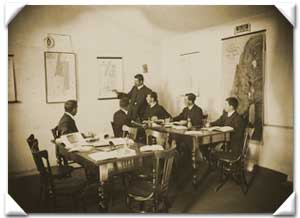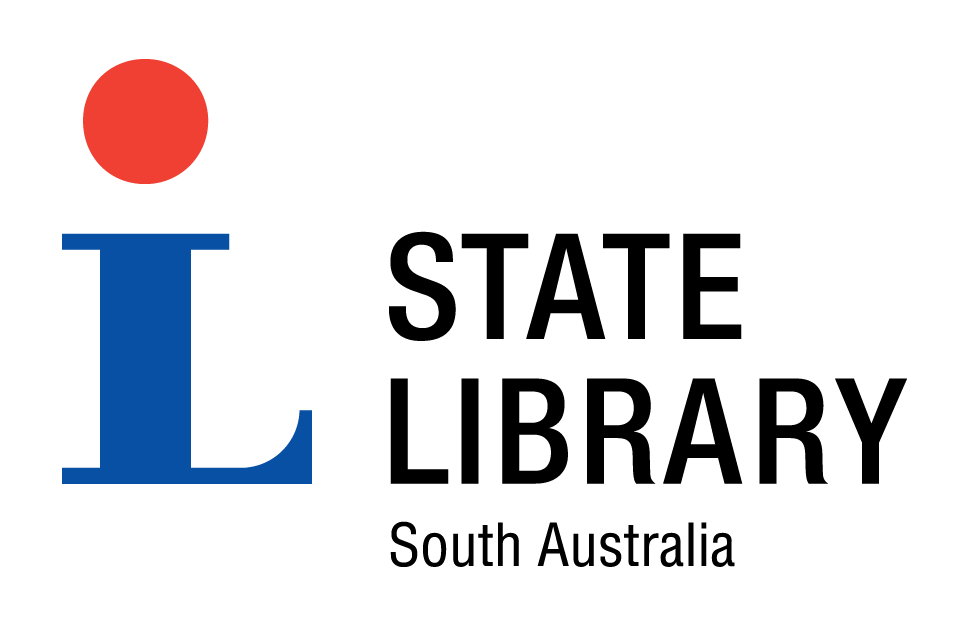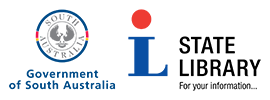
Religion : Education

In 1851 South Australia's first Legislative Council established the Central Board of Education, abolishing the short-lived scheme of state aid to churches and church schools. South Australia was the first British dominion to abolish all state aid to religious bodies, but nevertheless planned for 'good secular education based on the Christian Religion.' A clause in the Act allowed teachers in government schools to read from the Bible every day, 'without comment.' The Bible-reading clause was more problematic than helpful and was abandoned, but supporters lobbied for its return well into the 20th century. From 1940 to 1974 legislation allowed churches to conduct religious instruction in state schools for half an hour per week.
Most systematic religious instruction took place in Sunday Schools. In 1881 69% of school-aged children in South Australia attended a church Sunday School - although the majority of parents were not regular church-goers. In Protestant churches the Sunday School was the largest organisation. Annual Sunday School picnics and anniversaries were the highlights of the year. This situation continued up until the First World War, but attendances remained high well into the 1960s.
Sunday morning I took Mama's ragged riotous class, a fearful set, impudent and rude. I hope I did their little souls good, but I'm sure I did mine harm, feeling in a paroxysm of rage the whole hour and a half.
(Letter from Isabella Short to Minnie Glen c. 1858, PRG 160/22/141)
With the growth of Sunday Schools came improved teaching methods. The Sunday School Teachers' Union of South Australia was formed in the late 1850s. The Moonta Methodist system, developed by H. Lipson Hancock (one of 'Captain' Richard Hancock's many children) in the early 1900s was of a world-class standard, setting a professional standard for religious teaching.
Lacking government aid, Mary MacKillop and Julian Tenison-Woods felt passionately about providing general education for the children of the poor. Out of their vision grew a system of Catholic schooling, and the teaching order of Josephite nuns. The Lutherans also placed a high importance on education, with an essential religious base. There were 49 Lutheran schools operating in South Australia when the Verran government forced their closure through anti-'German' sentiment during the First World War.
Prior to the passing of the 1875 Education Act, the Anglican church established St Paul's 'poor school' in the city, and other small, low-fee schools. At the other end of the spectrum were the prestigious church schools for the children of the well-to-do. Since the 1980s a new move for low-fee Christian schools has occurred in response to parents wanting education for their children with either a religious ethos, or through discontent with the state school system.
The second stream of religious education was the training of men and women for full-time ministry. As early as 1842 Pastor Fritzsche set up a training school at Lobethal for both pastors and teachers in the Lutheran Church. The local Roman Catholic seminary had its roots in students taken by Bishop Murphy at West Terrace in the early 1850s. In 1871 representatives from the Baptist, Congregational and Presbyterian churches met to discuss the formation of a combined theological college. The decision to work towards this end was probably unique in Australia at the time. In June 1872 Union College opened with 30 students in rented offices in Currie Street. The lecturers were the Rev. Silas Mead (Baptist), John Davidson (Presbyterian) and James Jefferis (Congregational). The college closed in 1886 having provided 24 new ministers for the three church groups, as well as many Sunday School teachers and lay preachers. It was in this year that the Presbyterian Church decided to send their ministry students to Melbourne to train, forcing the college to close. The Church of Christ also trained their pastors in Melbourne in this period.
Despite the early training college at Lobethal, most Lutheran clergy trained overseas in either Germany or the USA for many decades. The first Anglican minister ordained in South Australia was the Rev. Richardson Reid in 1858. Others were trained at the church boys' school, St Peter's College, until St Barnabas' College at North Adelaide was opened for Anglican theological training in 1881. However, like the Lutheran Church, most Anglican ministers in South Australia trained overseas, in England, until the First World War. Following the introduction of a male Anglican religious order, the Society of the Sacred Mission, a second Anglican training college began at Crafers in 1947. The community at St Michael's House offered a five-year training course until the building was destroyed in the Ash Wednesday bushfires of 1983. Tabor College opened in 1979 aiming to provide "teaching from the Word of God and training for ministry in the power of the Holy Spirit." (Tabor web-site) It now has campuses in each state, training both pastors and lay people, predominantly for revivalist and charismatic congregations. The Adelaide College of Divinity was formed in the same year, providing combined training for members of the Anglican, Catholic and Uniting Churches. The College raised the educational standing of theological training through introducing accredited bachelor level qualifications in South Australia, through its affiliation with Flinders University.
A third religious-based education is theological training of adults for ministry in leading worshipping congregations, or for evangelism and mission work. From the 1880s locally-trained missionaries - including women - travelled overseas or worked amongst Aboriginal communities. A further stream of theological training is aimed at equipping ordinary church members to live their faith more deeply, largely through systematic Bible study. Currently such institutions as Tabor College, Adelaide College of Divinity and the Bible College of South Australia (formerly the Adelaide Bible Institute) run courses of this nature.
Almond, PC and PG Woolcock, eds. Dissent in paradise : religious education controversies in South Australia, Magill: Murray Park College of Advanced Education, 1978
McInerney, Marie, 'A legacy of learning', in Southern Cross, December 2008, p. 11
Meyer, Charles. Nurseries of the church: Victoria's Lutheran schools then and now, small histories, Frankston, Vic.: Charles Meyer, 1996
Scrimgeour, Robert J. 'Union College (1872-1886) Some Scots were here : a history of the Presbyterian Church in South Australia, Adelaide: Lutheran Publishing, 1986, pp. 97-99
(Image: Hancock family. Photograph album Moonta Mines Sunday School, teacher training classes, [1914?] PRG 1185/7/38)
Items 1 - 12 of 14














